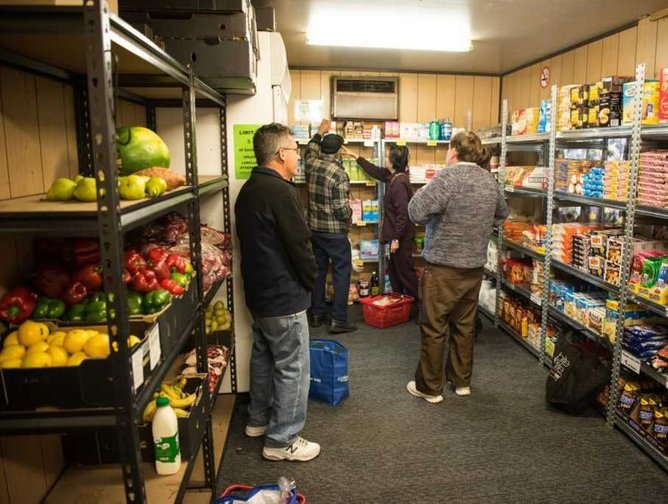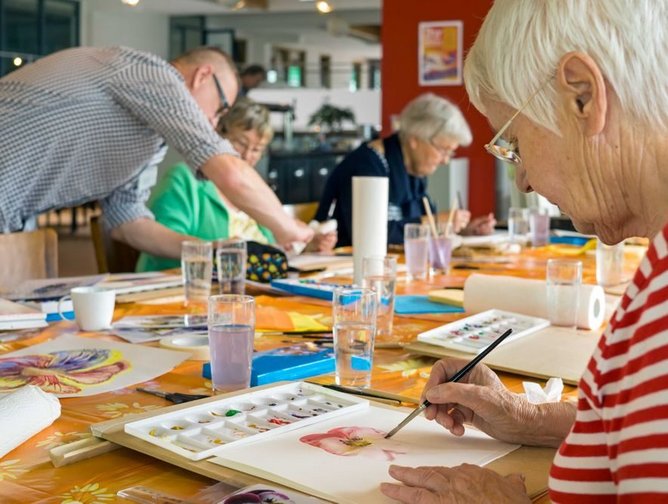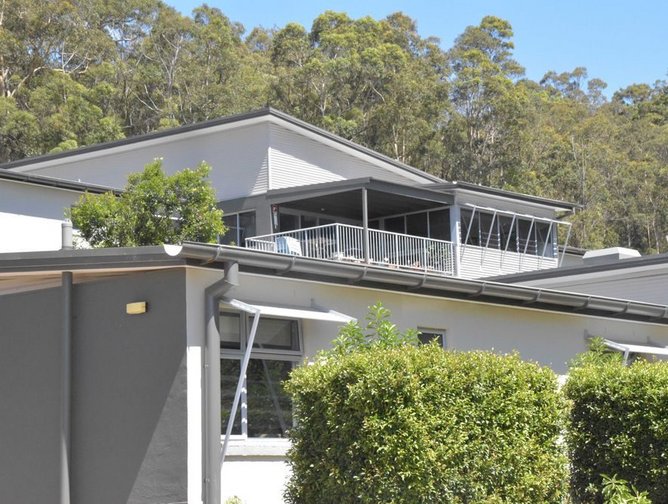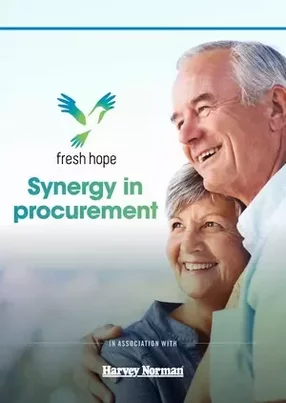For more than 170 years, a network of over 95 churches across New South Wales and the ACT, has coordinated and led benevolence services, support for the elderly and community welfare initiatives. Headquartered in Rhodes, NSW, Fresh Hope is a non-profit organisation dedicated to transforming individual lives and whole communities through aid and ministry. The company functions as a group organiser for Fresh Hope Care, Fresh Hope Venues, and Fresh Hope Mission and Ministry. Darrell Johnson has been in the elderly care space for 10 years, and in the procurement industry for just under a decade. In April 2017, he joined Fresh Hope as a procurement coordinator, and has since seen his responsibilities grow, rising to Procurement and Property Services Manager in March 2019. Excitedly, Johnson explains that the combination of procurement management and facilities oversight in a single role has the potential to create significant benefits for the company. “Procurement and facilities management are really one and the same,” he says. “It’s a journey of synergy between the two; the strategic alignment of the two functions really helps an organisation move forward.” Johnson discusses his role at the company and Fresh Hope’s journey to standardise and transform its procurement operations in order to continue scaling sustainably in the future.
Johnson has seen the business community’s attitude to procurement change dramatically over the past decade. “When I first started, procurement was always relegated to the back of the room and never really heard,” he recalls. “Now at Fresh Hope I've got full support from all my directors and the team. We’re viewed as an integral part of the organisation. We’re a vital piece of the puzzle when it comes to strategy: ensuring compliance and governance – in many ways, we’re an information gateway to the company choosing the right course of action. All contracts come through me to be double checked from a legal standpoint and so on.”
As an organisation that coordinates operations across multiple agencies, establishing an overarching procurement infrastructure has been at the core of Johnson’s role. “We’ve centralised and streamlined our contracting and tendering process, as well as our documentation, policies and procedures,” he explains. “We're transforming from an organisation that was very immature in this space, very siloed in its operations and supplier relationships, to a truly centralised company. We’ve transitioned from being all paper based, with a loose association of contract documents spread across the organisation, to being centralised onto a SharePoint site. Now, all of our policies and procedures are readily available, all our contracts are searchable with all their insurance documentation; we have access to anything we need from a compliance point of view.”
As a procurement veteran who is now managing the operations of Fresh Hope’s facilities, Johnson stresses that communication, and initiatives and solutions to enable this communication, are the key to success. “As an organisation, if we can't communicate, we’re dead in the water,” he says. “We’ve really got to understand who our stakeholders are. It’s also important that we don’t force change; you have to take people on that journey with you; you have to explain and educate them on the benefits.” Communication not only helps Johnson’s team effect change that will improve Fresh Hope’s procurement process, but also makes changes to the procurement arm of the business that will benefit its other elements. “It's about finding out from your stakeholders what would help them fulfil their roles better, because in turn that will make my role easier. If I can help and make someone's day easier, that will make my day easier too,” Johnson says.
An emphasis on communication is more important than ever to Johnson and his team, since his expansion of responsibilities. Responsible for both procurement and the management of Fresh Hope’s numerous facilities, he maintains that if greater exchange of information can be beneficially harnessed, the role extension will lead to increased synergy in the business. “It gives us more of a brief to look at what we’re doing with our retirement living age care services. We’re now able to deliver very strategically on certain issues,” Johnson says. “We’re looking at streamlining all our renovations so, for example, we will have all our tiles, plumbing supplies and so on pre-selected and included in our contract to the supplier, so we can just say: ‘It’s this unit, it’s this colour scheme with these appliances.’” This approach, Johnson believes, will also create budget synergies by streamlining and consolidating the procure-to-pay process, as well as further empowering Fresh Hope to create positive change in the community. “There are all sorts of things we can do that are beneficial, not only to the community but to us as an organisation. It’s part of my remit to ensure stewardship and sustainability for the organisation,” he says.
For Johnson, sustainability and new technology come hand in hand. “We’re always looking at what the next big thing is. I’m looking at new technologies that can monitor residents’ vitals wirelessly while they’re lying in bed. We also have a government grant to install solar power in some of our age care facilities, and we’re looking at managing waste,” Johnson explains. “We realised we’ve regularly been throwing away 65 tonnes of food from just one site. By cutting that down we’ve realised we can save money and make our operation more environmentally sustainable.”
Fresh Hope is growing rapidly. “We're looking at developing more in the age care space and trying to hone in on the best way that we can help the communities there,” Johnson says. “With regard to procurement and property, we’re looking to streamline and strengthen a lot more of our systems, policies and strategies for supporting the business.” He maintains that more digitalisation of the business is on the horizon, which will continue to empower Fresh Hope’s employees to focus on their true task: “Caring for our residents, looking after school camps, and working in the conference centre or for our outreach programs.”



- Darrell Johnson

